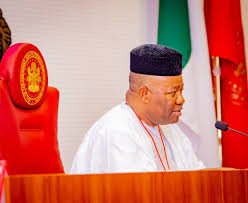Renowned media scholar and former Director-general of Nigeria Television Authority (NTA), Tonnie Iredia, has stated that section 22 of the Nigerian constitution, often cited by journalists as guaranteeing freedom of the press, is not as effective in protecting journalists as being touted.
Speaking at the annual conference of the International Press Institute (IPI) Nigeria in Abuja, Iredia explained that the section is merely a mandate given to journalists by the constitution, but it does not explicitly provide for the practitioners’ freedom.
He said, “Section 22 of our constitution that many of us mistakenly assume to be press freedom is not freedom but an assignment, a mandate.”
Iredia compared the cited section with the first amendment in the United States (US) and other countries, which states explicitly that nothing shall be done to take away the freedom of the press.
He noted that Nigeria’s neighbors, Ghana, and Malawi, have constitutions that grant freedom of the press, but Nigeria does not.
The media scholar emphasized that the Nigerian constitution regards the media as being given an assignment to do something, but there is no provision for freedom in carrying out that assignment.
He stated, “It does not exist in the Nigerian constitution.”
Iredia also expressed concerns about the manipulation of laws, such as the Cybercrimes Act, which have been used to target journalists and threaten the practice of journalism in an ecosystem that is “overregulated.” He said, “Of course, nobody intended that when you publish an article, you’ll be arrested for cybercrime. But that’s what happens because the Cyber Crimes Act was so structured.”
According to Iredia, the cybercrimes act allows for the arrest of a journalist for writing a piece that annoys someone.
He said, “I use the word annoy. It’s in the (cybercrimes) law.”






















